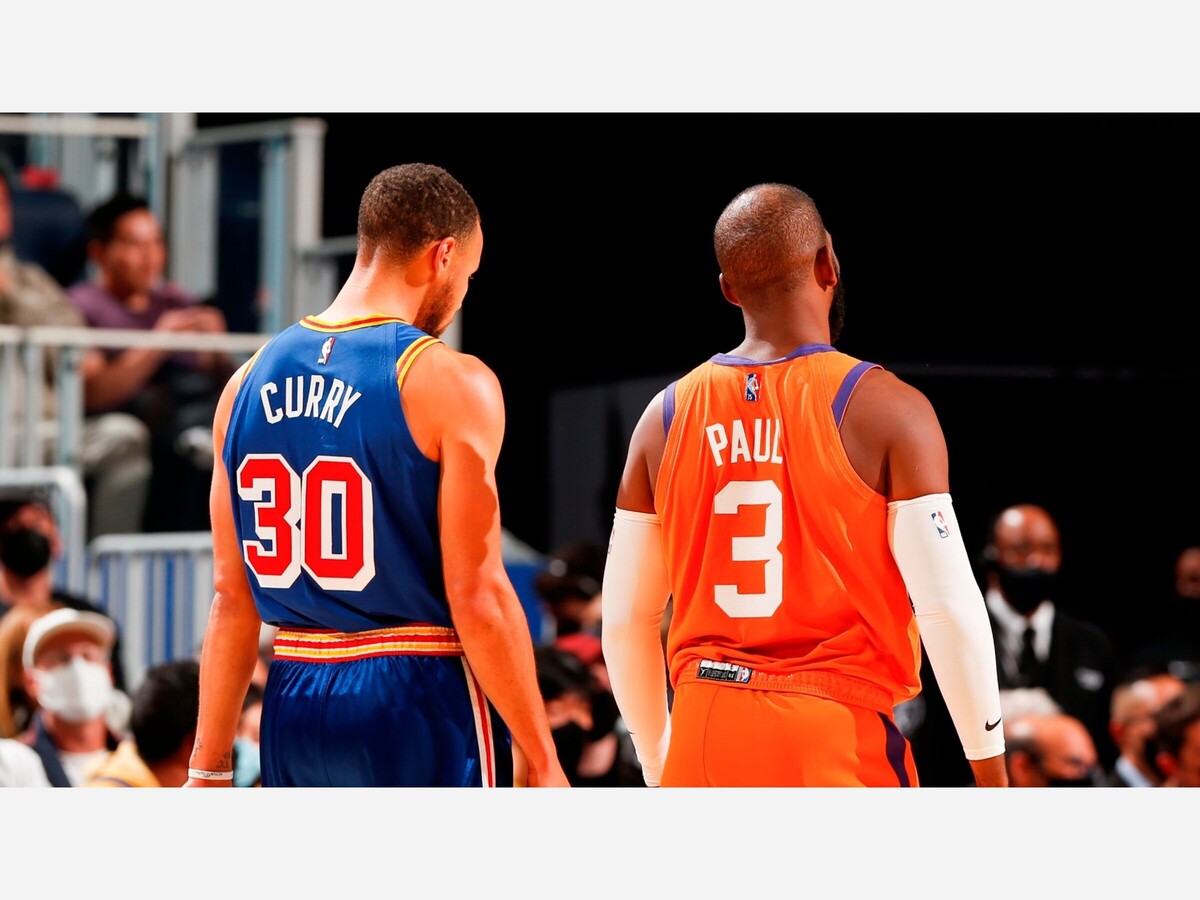Image

Well, Warriors fans couldn't say that they didn't see a Jordan Poole trade coming. Some fans wanted a big like Jakob Poertl or Nic Claxton; others wanted versatile forwards like OG Anunoby or even Jaylen Brown. Whatever the case may be, many Warriors fans simply wanted Jordan Poole out of Golden State due to his attitude, lack of defense, me>team mentality, and turnover-prone playstyle. A Woj bomb was dropped a few hours before the draft, breaking the Poole trade news. But who did the Warriors trade Jordan Poole for? 38-year-old Chris Paul? And we had to throw in two picks? The fanbase seems torn about the trade, which was also the first real move of new GM Mike Dunleavy Jr. On one hand, Poole's contagious negative attitude is no longer with the team, and his contract is no longer an issue; on the other hand, Poole is a 24-year-old with immense offensive potential, averaging 25 points a game as a starter this past season, and just a year ago, was a key contributor to a championship-winning team. Though I was shocked at the trade initially, I've had a few days to sit on it, and after the 2023 NBA draft, I genuinely view the Poole for CP3 trade as a win for the Warriors, both in the immediate future and long-term future.
The Logistics of the Trade
In short, the Golden State Warriors traded Jordan Poole, a 2027 second-round pick, a 2030 protected first-round pick, and rookie Ryan Rollins to the Washington Wizards for Chris Paul. By technicality, the Warriors also traded first-round rookie Patrick Baldwin Jr to the Wizards for the 57th pick, which became Trayce Jackson-Davis. Despite all the moving parts, let's just simply view this trade as this: Jordan Poole for Chris Paul.
Why Acquiring Chris Paul was a Win for the Warriors
Fans may be irritated that the Warriors traded a 24-year-old for a 38-year-old. However, the recent trades that Chris Paul has been thrown in made it seem like he's a washed-up, no-good 38-year-old on his way to retirement. That is simply not the case. At age 37 and 38 this past season, he averaged 13.9 points, and more importantly, 8.9 assists per game on 44% shooting from the field and 37.5% shooting from three. Those numbers don't seem washed up to me. Yes, he dealt with some injuries, but that's most likely because of the fact that the Phoenix Suns required a 38-year-old to play 32 minutes a game. If you're not Lebron James, then no 38-year-old should be playing that many minutes. On the Warriors, he'll be primed for a backup position, where he'll at most be asked to play 25 minutes a game with probably some rest days during the season, like how Andre Iguodala was given rest days in the 2022-2023 and 2021-2022 season. Despite being 38 years old, Chris Paul's game isn't predicated on insane scoring, athleticism, or quite frankly, anything physical. What he brings to the table is something that doesn't just disappear with age: a high basketball IQ, leadership skills, and historic passing abilities. With that means fewer turnovers, and what did the Warriors struggle with most last season, and who was a huge culprit for that? Turnovers and Jordan Poole. Some may point to the fact that Chris Paul's slow, controlled, yet mundane playstyle is the antithesis of the Warriors' fast-paced, beautifully-chaotic playstyle, which makes the trade highly questionable. To that, I say this: the Warriors' system, above all else, is predicated on smart, high-IQ players and team players. Jordan Poole's shot selection and random isolations oftentimes ruined the flow and momentum of the Warriors' offense, and he's so hell-bent on getting his own and iso-scoring that he fails to see a wide-open shooter on the wings or corner, or a forward obtaining great post position at the low block. With Chris Paul, he'll play within his style, making smart, high-IQ passes and locating shooters on the wing, and putting passes right on the money. At the very least, Paul will be able to provide stability and leadership to an extremely young, chaotic second unit, filled with third-year players like Kuminga and Moody and even rookies like Podizemski and Jackson-Davis. But, Paul is also suitable for the first unit as well. With Paul in control as the true lead guard, he allows Klay and Steph to do what they do best: off-ball movement. And if the defenders are too occupied with the off-ball movement of the Splash Brothers, Paul can certainly knock down jumpers, whether a three or his patented drifting mid-range. I haven't even gotten to another main benefit of acquiring Paul and shipping Poole: the financial and contractual situation. Jordan Poole is due 140 million dollars over the next 4 years, and with the Warriors' desire to keep Draymond Green and the new CBA agreements, it'll be impossible to keep Green on the long-term contract he wants. On the other hand, Chris Paul is due 30 million for just one year, the year before the CBA financial agreements officially kick in. So, after next season, with Poole gone, there's a genuine chance that the Warriors may actually go 20 million dollars UNDER the luxury tax for the first time in ages. The financial freedom allows the Warriors to finally sign higher-level players in free agency rather than trying to find diamonds in the rough with minimum contracts.
In conclusion, the Chris Paul-Jordan Poole trade is a win as: 1. he helps with the turnover problems 2. he's not washed up yet 3. he stabilizes the second unit and 4. his contract offers more financial freedom. Also, with the draft over, it's highly likely that Brandin Podziemski could become the next Jordan Poole-type player for the Warriors, just without the attitude and ego problems. Warriors fans should be optimistic, not pessimistic, that the Warriors acquired a future Hall-of-Famer, whose best skillset is still fully intact and doesn't disappear with age.